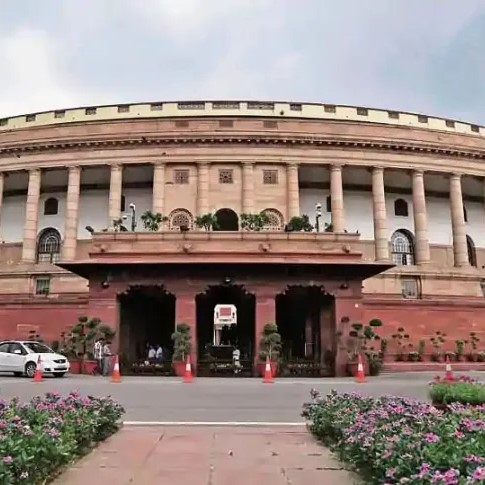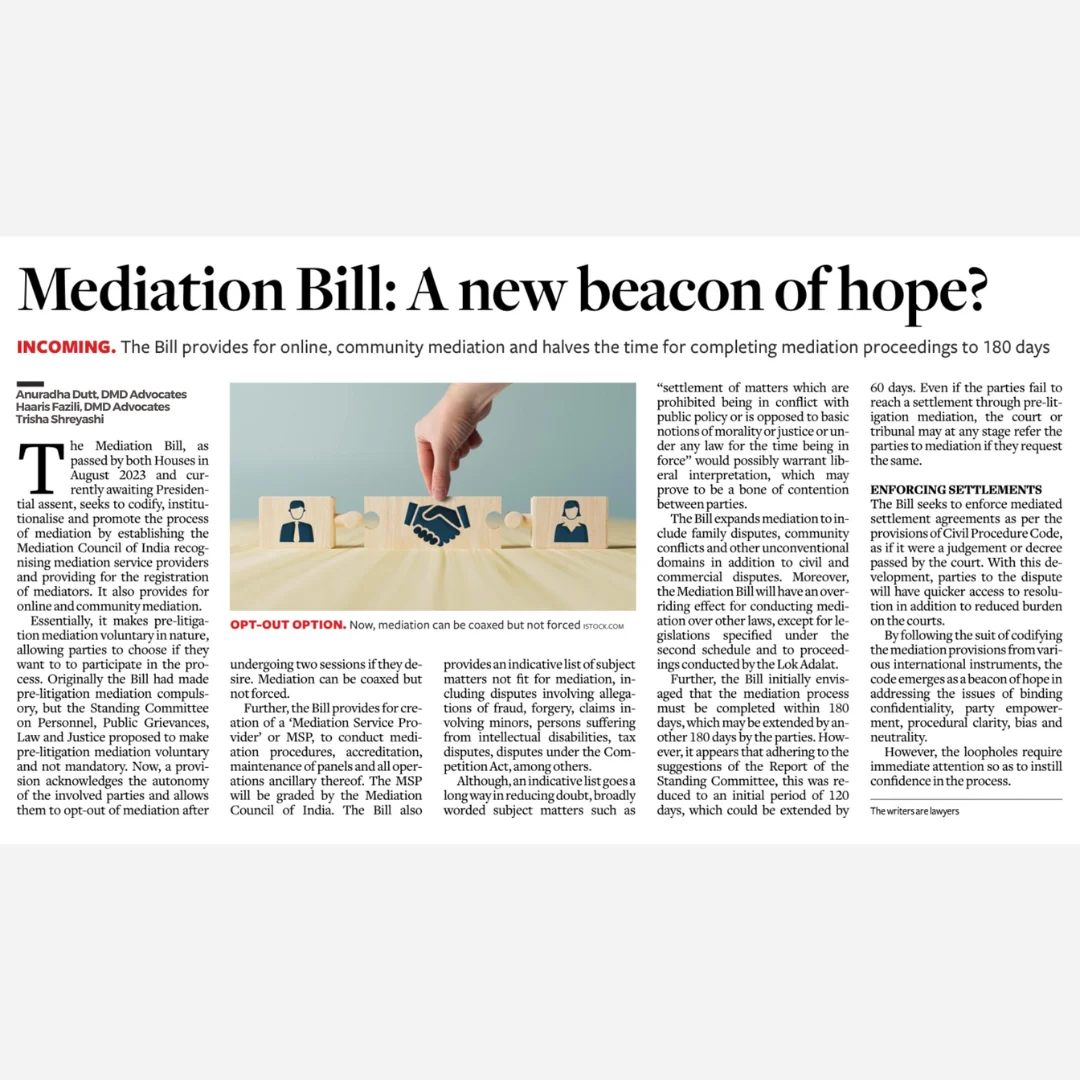Publications
Competition Law Amendments: Of Penalties and Misses
14 Feb 2023
- DMD
- Article
Based on recommendations made by a parliamentary panel in December 2022, the government has tweaked its proposed amendments to India’s competition law and is set to introduce the Competition Amendment Bill (2023 Bill) in Parliament. The most significant change in the 2023 Bill is that the Competition Commission of India (CCI) can now impose penalties up to 10% of the total global turnover of enterprises found to have contravened the competition law. Currently, penalties are generally calculated as a percentage of only ‘relevant turnover’ in India, which excludes sales from products which have no relation to the contravention. The current law uses the word ‘turnover’ in the penalty provision and does not specify if it is ‘total’ or ‘relevant’. In 2017, the Supreme Court clarified that turnover for imposing penalty should mean ‘relevant turnover’. It held that when the contravention “involves one product, there seems to be no justification for including other products” for imposing a penalty. Some argued that this significantly watered down the deterrent effect which the law and its draftsmen sought to achieve.
Interestingly, the government has also retained a provision that required the CCI to come out with regulations to ‘determine’ the turnover to be considered for penalties. Effectively, there may still be some elbowroom for the CCI to alleviate industry’s concerns around steep penalties through its regulations, even if the statutory limit on the maximum penalty will now be based on the total global turnover. In practice, the CCI seldom imposes the highest possible penalty on large companies and would, no doubt, continue to be mindful of the principle of proportionality whilst calculating penalties. But this development would exacerbate the need for much-awaited guidelines on determining an ‘appropriate penalty’ for a contravention, which the CCI is now required to publish under the proposed amendments.
There was no recommendation made by the panel to introduce this change, but it may have been triggered by the CCI’s recent experience in cases involving a big-tech company where the CCI had concerns about the company’s computation of its relevant turnover. Even if the objective may be to deter companies from breaching competition rules, this change may have far-reaching consequences, especially for multi-product conglomerates and big-tech companies with global operations (like Amazon), which may be under investigation for the conduct of one of their divisions and may be exposed to massive penalties based on their total global turnover.
Another interesting change in the 2023 Bill is the expansion of the scope of liability of cartel facilitators. The amendments proposed to codify the liability of cartel facilitators which ‘actively participate’ in the furtherance of a cartel. Later, the panel recommended that the scope of this proposal must be limited by an explicit obligation that the CCI must first prove that a facilitator “intended to actively participate” in a cartel. Surprisingly, the 2023 Bill has instead expanded its scope by removing the word ‘active’. Additionally, this presumption can now be raised against entities which may not have in fact participated but may have only ‘intended’ to participate in a cartel. There is no guidance on how the intention to participate would be established, especially when there is no actual participation. Such a broad provision raises over-enforcement risks and may expose certain entities (including digital intermediaries and national industry bodies organizing meetings without any agenda to share sensitive information) to the undue hardship of having to rebut such a presumption during a probe (as this issue is unlikely to come up before the CCI at the preliminary pre-investigation stage). It may, therefore, be prudent to limit this provision to cover only genuine cartel facilitators.
A recommendation of the panel that has not made it to the 2023 Bill is the inclusion of cartels in the proposed settlement regime. An objection to settling cartel cases was that there already exists a leniency regime for them. However, leniency and settlement regimes are designed to secure efficiencies at different stages of a CCI inquiry, and they co-exist in other countries. While leniency is primarily aimed at freeing resources of the investigative arm of the CCI (DG), settlements ensure efficiency once the investigation is complete and there is evidence of contravention against parties.
Even if the intention was not to offer two discounts to cartelists (one for leniency and another for settling), a provision for settlements could be made only for non-leniency cases where parties decide to defend themselves. Certain companies may not initially opt for leniency, as they may either not be aware of the evidence that exists against them or decide to take a chance hoping that all of it may not get unearthed. However, once evidence comes on record through an investigation report, companies may be given an option to reconsider their initial decision and settle the case with the CCI by agreeing to pay a discounted penalty and committing themselves to future compliance. This would be a win-win both for the company and the CCI, as extensive resources on both sides would be saved. This would also bring finality to CCI decisions as settlement orders would not be open to appeal. The exclusion of cartel settlements seems like a missed opportunity to free some of the Commission’s vital resources and improve its penalty recovery rate.
Divyansh Prasad contributed to this article and these are the author’s personal views.
Vivek Agarwal is partner, DMD Advocates and co-chair, competition committee, PHD Chamber of Commerce & Industry
































